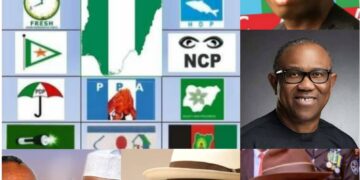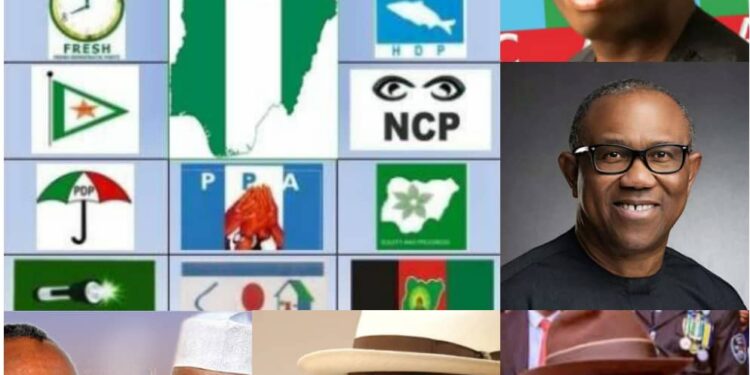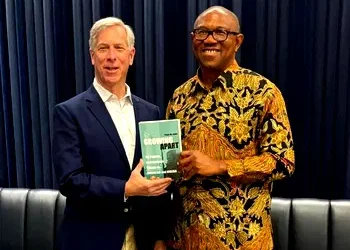By Jonah Arete Ehiabhi – EsanRadioTV Political Desk
As Nigeria inches closer to the 2027 general elections, the political atmosphere across the country is rapidly evolving, marked by new alignments, surprising defections, and a quiet but strategic build-up that could define the nation’s democratic direction in the years to come.
At the heart of the current political tremors is the North, where two formidable figures—former Kaduna State governor, Nasir El-Rufai, and former Vice President, Atiku Abubakar—are reportedly mobilizing distinct but influential coalitions. Their activities are raising eyebrows and signaling a possible northern resurgence that could recalibrate the traditional power balance between the country’s geopolitical zones.
El-Rufai, known for his technocratic style and controversial policy stances, has reemerged as a powerbroker in the North. Following a period of political silence after his exit from office in 2023, he is now said to be quietly forging a coalition of northern progressives, technocrats, and younger political actors disillusioned with the current APC structure. His recent public engagements and closed-door meetings with key Islamic clerics and traditional rulers point to a man preparing for either a kingmaker role—or something more direct.
In parallel, Atiku Abubakar, the perennial presidential contender and PDP’s flagbearer in the 2019 and 2023 elections, is also reasserting his influence. Despite the setbacks of previous elections, Atiku remains a political force in the North and has started galvanizing support within his old network across the North-East and North-West. Rumors of a possible merger or alliance between Atiku and El-Rufai, though still speculative, have added spice to the northern equation.
The South-South region, traditionally a stronghold of the PDP, has not been spared from the political whirlwind. In a move that has sent shockwaves through the party and redefined the political calculus in the oil-rich region, Governor Ifeanyi Okowa of Delta State and former vice-presidential candidate in the 2023 elections, has formally defected from the PDP. While Okowa’s next political destination is yet to be officially confirmed, sources close to the Delta government house suggest a potential alignment with a “Third Force” movement or a rebranded APC coalition.
Okowa’s exit, coming at a time when the PDP is already grappling with internal divisions and dwindling grassroots appeal, especially in the South-East and South-South, could deal a major blow to the party’s 2027 aspirations. His departure also signals broader dissatisfaction within the PDP’s ranks, particularly among former governors and national assembly members who feel sidelined by the current leadership.
Meanwhile, the APC, under President Bola Tinubu’s leadership, is facing its own challenges. While the administration touts reforms in revenue generation and infrastructural investment, economic hardship, inflation, and growing insecurity have created a vacuum that opposition elements are eager to exploit. The North, where Tinubu struggled to consolidate support in 2023, remains a battleground, and the emerging El-Rufai and Atiku coalitions could further weaken the party’s hold.
In the South-West, Tinubu’s home turf, political loyalty remains divided. While governors from the region have maintained a public show of unity, the undercurrent suggests a slow, growing discontent, especially among younger voters who feel left out of the national conversation.
As things stand, Nigeria’s political terrain is bracing for what may be one of the most unpredictable elections since 1999. With shifting loyalties, reconfigured alliances, and the re-entry of key political gladiators, the road to 2027 promises intense drama, strategy, and possibly a redefinition of power.








































